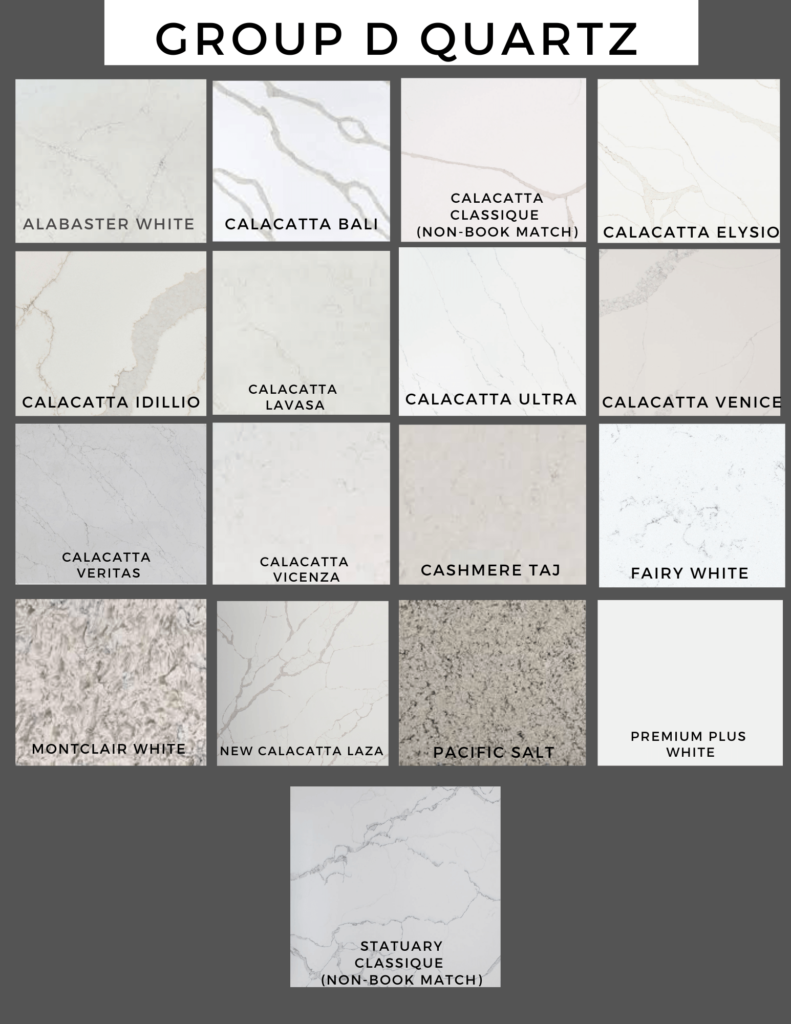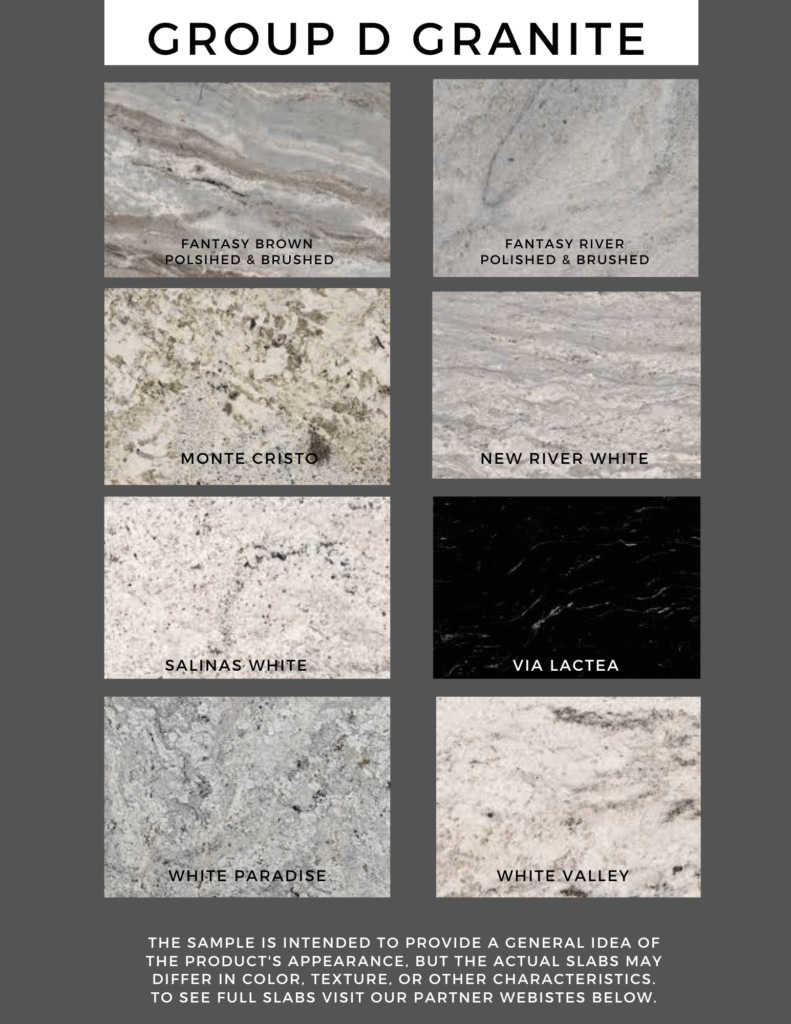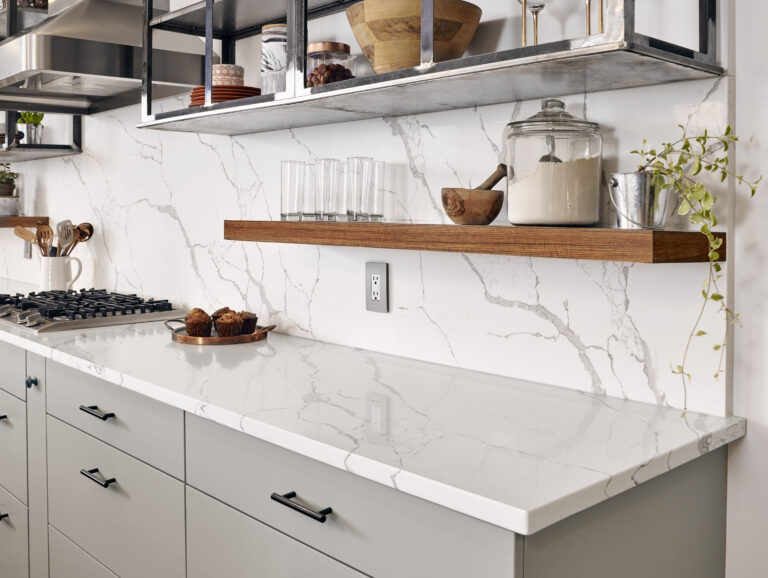When it comes to choosing countertops for your kitchen or bathroom, natural stone and engineered stone are two popular options. While they may look similar at first glance, there are significant differences between these two materials. In this blog post, we will explore the disparities between natural stone and engineered stone countertops, including their composition, durability, maintenance requirements, and aesthetic appeal. By understanding these differences, you’ll be better equipped to make an informed decision for your countertop installation.
Types of Stone Countertop Composition
- Natural stone: Natural stone countertops, such as granite, marble, and soapstone, are quarried directly from the earth. These stones are formed over thousands of years through natural geological processes. Each slab of natural stone is unique, with variations in color, veining, and patterns.
- Engineered stone: Engineered stone countertops, also known as quartz countertops, are manufactured using a combination of natural quartz crystals, resins, and pigments. The process involves crushing and mixing quartz with polymer resins to create a durable and uniform surface. Engineered stone allows for more consistency in color and pattern compared to natural stone.
Stone Countertop Durability
- Natural stone: Natural stone countertops are renowned for their durability. Granite, for example, is one of the hardest natural materials and is highly resistant to scratches, heat, and staining when properly sealed. However, certain stones, like marble, are more susceptible to etching and require extra care. Industry insiders will tell you, natural stone can be surprisingly fragile compared to engineered quartz. The variance in stone colors and patterns also makes it more challenging to fabricate.
- Engineered stone: Engineered stone countertops are engineered to be extremely durable. The combination of quartz and resins creates a uniform chemical composition that is resistant to scratches, heat, stains, and impact. Engineered stone countertops do not require sealing, unlike natural stone. However, they can be prone to discoloration or damage when exposed to excessive heat or UV rays for prolonged periods.
Stone Countertop Maintenance
- Natural stone: Natural stone countertops require regular maintenance to preserve their beauty and longevity. They should be sealed upon installation and resealed periodically to prevent staining. It’s essential to clean up spills promptly and use pH-neutral cleaners to avoid damaging the stone. Different types of natural stone have specific care requirements, so it’s crucial to follow the manufacturer’s recommendations.
- Engineered stone: Engineered stone countertops are relatively low-maintenance. They do not require sealing or special cleaners. Regular cleaning with mild soap and water is usually sufficient to keep them looking their best. However, it’s important to avoid harsh chemicals or abrasive cleaners that can dull the surface or cause discoloration.
Stone Countertop Aesthetic Appeal


- Natural stone: Natural stone countertops exude a timeless beauty and unique character. The variations in color, pattern, and veining make each slab one-of-a-kind. Granite offers a luxurious and natural look, while marble is known for its elegance. Other natural stones like soapstone and slate provide a more rustic or textured appearance.
- Engineered stone: Engineered stone countertops offer a wide range of colors and patterns. They can replicate the look of natural stone or achieve uniformity in color and pattern. Engineered stone provides a consistent and contemporary aesthetic, making it a popular choice for modern and minimalist designs.
Stone Countertop Cost
- Natural stone: Natural stone countertops can vary widely in price depending on the type of stone, rarity, and quality. Granite and marble tend to be more expensive, while soapstone and slate are relatively more affordable options. The cost also includes factors such as fabrication, installation, and sealing.
- Engineered stone: Engineered stone countertops are generally priced lower than high-end natural stones like granite or marble. However, the cost can still vary based on the brand, quality, and complexity of the design. Cambria slabs for example cost quite bit more. Additional expenses may include fabrication and installation.
Your Stone Countertop Choice Should Hinge Upon Preference, Budget, and Requirements
Choosing between natural stone and engineered stone countertops ultimately depends on your preferences, budget, and specific requirements. Natural stone offers unmatched beauty and individuality but requires more maintenance. Engineered stone provides durability, consistency, and a range of design options. Consider factors such as aesthetics, maintenance, durability, and cost to make an informed decision for your countertop installation. Whether you opt for the timeless allure of natural stone or the contemporary appeal of engineered stone, both can elevate the look and functionality of your space.
Want to learn more about the different countertop material options available to you? Check out our countertop guide here!
